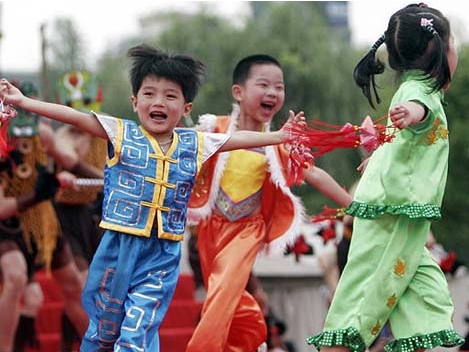
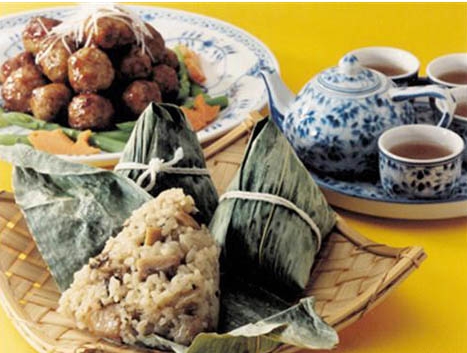
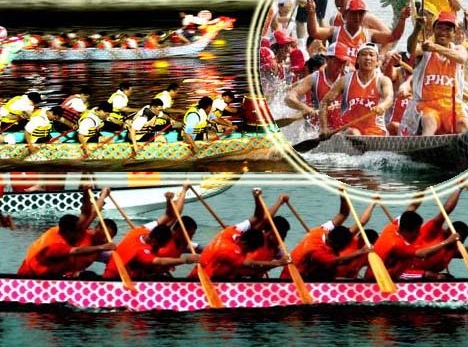
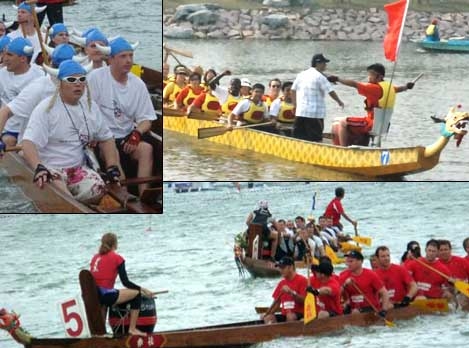
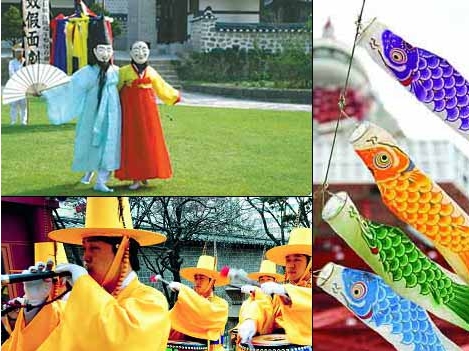
Parks, lakes and rivers around the country will be alive with the sounds of drummers pounding out furious beats and racers vigorously urging their dragon boats across the water to celebrate the traditional Dragon Boat Festival (duanwujie).
Celebrated on the fifth day of the fifth lunar month of every year, the Dragon Boat Festival is one of the country's oldest festivals, dating back some 2300 years. According to legend, the festival celebrates the patriot, poet and exiled minister Qu Yuan, who drowned himself in grief when his home state of Chu was invaded.
Thousands of years later, people continue to celebrate the holiday by racing dragon boats and eating zongzi, which are a type of rice dumpling originally thrown into the river to keep fish away from Qu's body.
Over the years, the festival has grown into a sporting and cultural event around the world, with dragon boat races taking place among Chinese communities in cities such as Boston and Victoria, Canada.
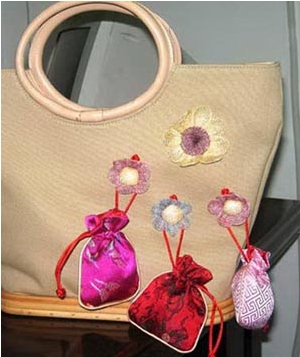
In addition to China, several other Asian countries also celebrate the fifth day of the fifth lunar month, albeit in different ways. The Japanese set aside the day as Children's Day, a day to respect children's personalities and celebrate their happiness, while the Vietnamese also celebrate the day by holding the Festival of Delicious Fruit.
The most prominent example of the shared holiday is the Gangneung Dano Festival in South Korea, which was recognized by UNESCO as a "Masterpiece of the Oral and Intangible Heritage of Humanity" in 2005.
The holiday's recognition by UNESCO previously aroused discussion among some Chinese scholars and internet users, who questioned why China was not doing more to protect and promote its own culture.
Scholars in South Korea, however, explained that the Gangneung Dano Festival is entirely different from the Dragon Boat Festival. Although set on the same date, the two festivals celebrate different things, as the Gangneug Dano Festival in Korea was originally a sacrificial ritual to the spirits of agriculture, heaven and the mountains celebrated at the end of planting season by singing and dancing.
"It has nothing to do with dragon boat racing and zongzi eating. It's just about the local rituals to honor the spirit of nature," Xu Baokang, an expert on South Korea at People's Daily told Global Times.
National pride aside, South Korea's experience offers China a lesson about how to increase awareness about the need to protect traditional cultural heritage.
"Besides preserving the traditional meaning of this festival, [South Korea] incorporated some modern elements into it, such as swinging, wrestling and making masks," a report by New Beijing Times said.
In recent years, China has begun to learn from the experiences of other countries in protecting their cultural heritage and is implementing a system for listing and funding such preservation.
One example of the country's ongoing efforts to protect its cultural heritage is the elevation of the Dragon Boat Festival to a national holiday last year, which has helped to stimulate interest in the festival and has allowed more time for communities to organize activities to celebrate the ancient festival.





